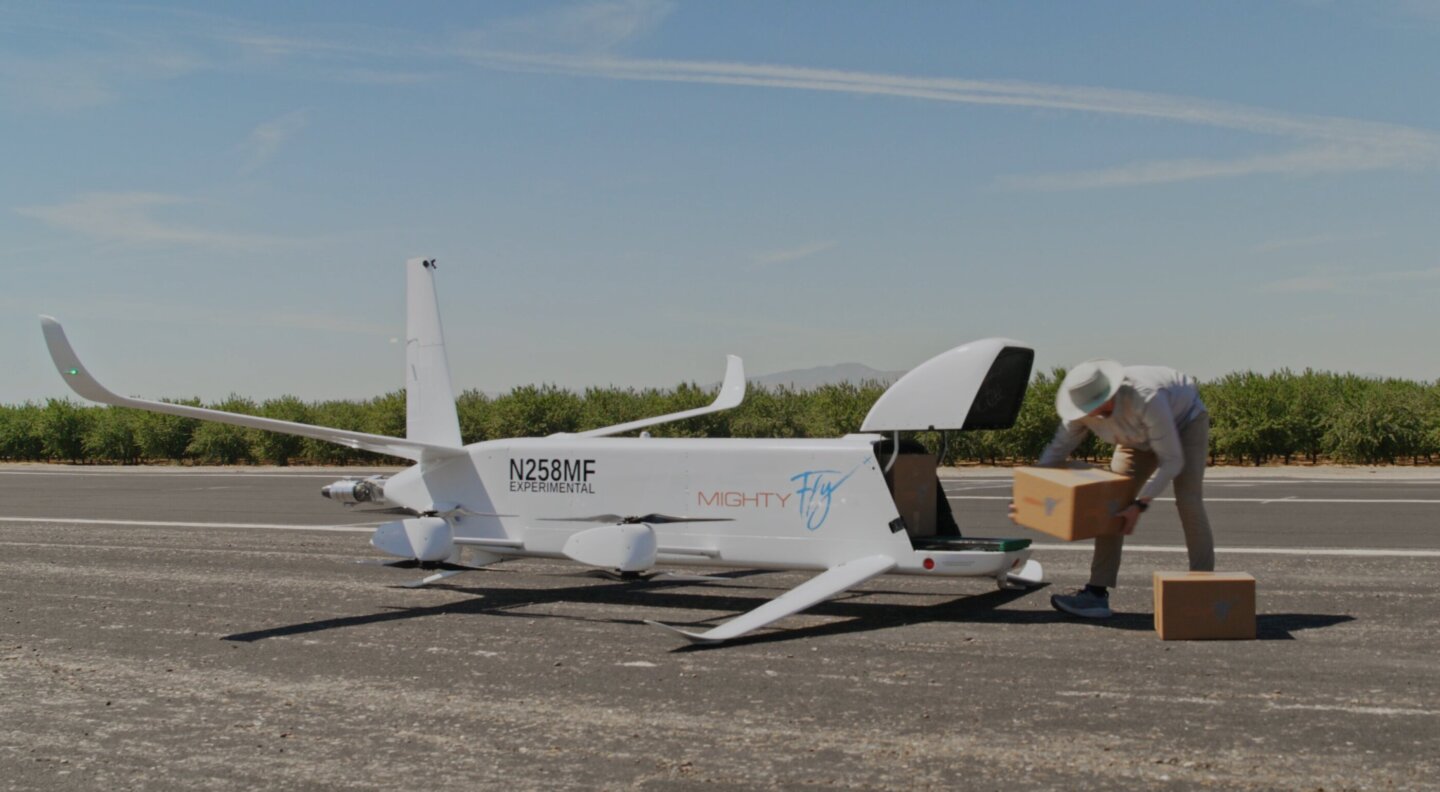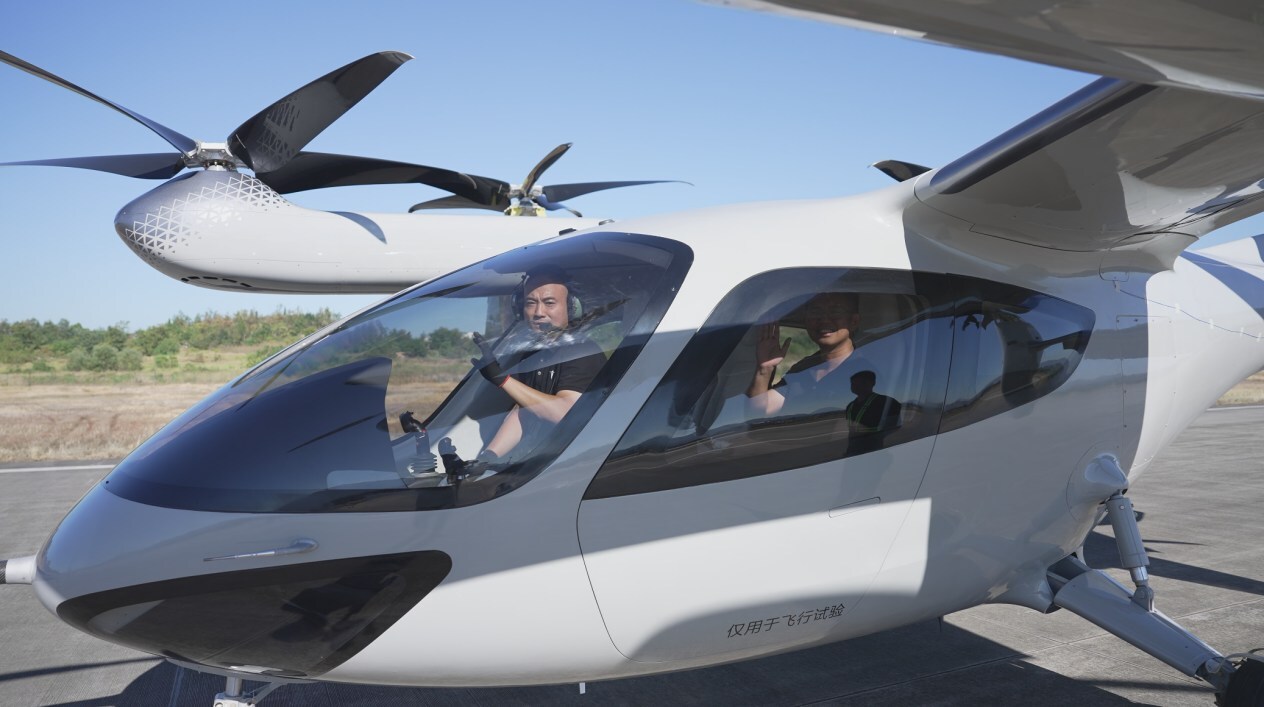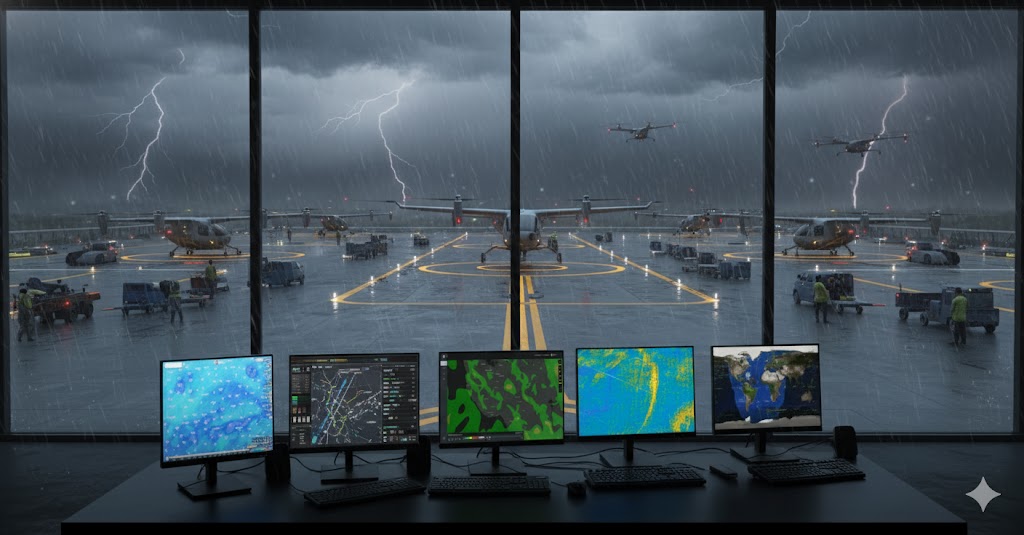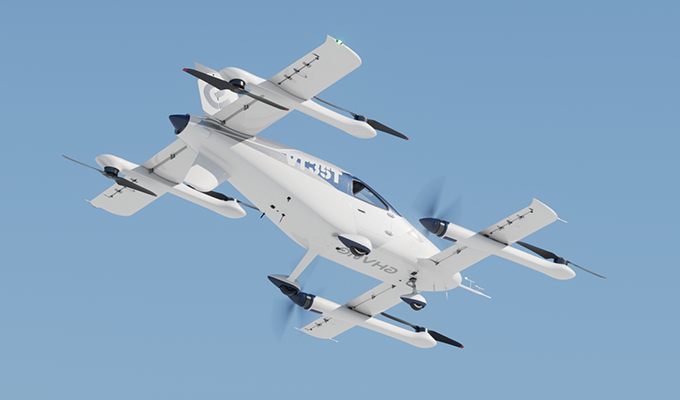The low-altitude economy has gained serious momentum with news that MightyFly has secured a substantial $50 million contract to deliver diagnostic test kits via autonomous cargo aircraft. This five-year deal with an unnamed California healthcare diagnostics provider represents one of the largest commercial deployments of autonomous cargo eVTOL aircraft in healthcare logistics to date.
But this isn’t just another press release about drone delivery promises. MightyFly’s contract addresses a fundamental problem: the broken logistics pipeline that slows down diagnostic results and limits access to healthcare. When you’re waiting for test results that could determine your treatment plan, every hour counts.
Beyond Small Package Delivery
Most drone delivery services you’ve heard about handle single packages between two points. Think Amazon dropping off your book order or a pharmacy delivering your prescription. MightyFly’s approach is different. Their Cento aircraft can autonomously haul hundreds of diagnostic test kits on multi-stop routes, essentially functioning like airborne delivery trucks rather than flying mailboxes.
The numbers tell the story: MightyFly claims delivery speeds three times faster than traditional ground services while cutting operating costs by 70%. That’s the kind of performance improvement that gets CFOs’ attention, especially in an industry where the U.S. pharmaceutical logistics market exceeds $100 billion annually and healthcare logistics approaches $90 billion.
The Aircraft Behind the Headlines
The Cento aircraft powering these operations isn’t your typical drone. This hybrid-electric vertical takeoff and landing machine can carry up to 100 pounds of cargo for distances of up to 600 miles at speeds of up to 150 mph. Picture something roughly the size of a midsize car with eight electric lift fans for vertical operations, plus one pusher propeller for forward flight.
What makes the Cento particularly interesting is its Autonomous Load Mastering System (ALMS). This technology automates cargo bay operations, package positioning, and weight distribution calculations, eliminating the need for human intervention. The aircraft can literally open its own cargo door, secure packages inside, and automatically compute center of gravity adjustments.
The technical specs reveal thoughtful design choices. The tandem wing configuration allows for significant adjustments to the center of lift, while structural conductors reduce weight, and a composite carbon fiber airframe maximizes payload capacity. The canard even serves double duty as landing gear, minimizing drag.
MightyFly Cento Technical Specifications (2024 Third Generation)
Advanced Systems:
The Woman Behind the Company
MightyFly’s trajectory reflects the vision of CEO Manal Habib, whose background reads like a blueprint for aerospace innovation. After earning degrees from both MIT and Stanford in aerospace engineering, she gained experience at Zipline, developing flight control systems for medical delivery drones. At Zipline, she created what’s considered the first robust commercial flight controller.
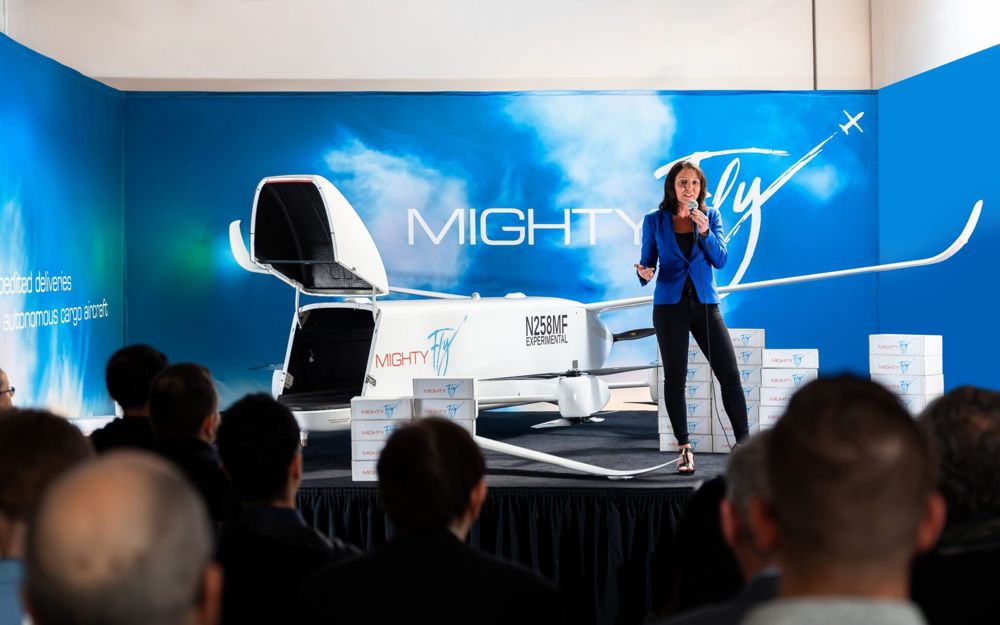 Manal Habib, the founder of MightyFly, speaks at an event about the company’s third-generation autonomous aircraft, the Cento
Manal Habib, the founder of MightyFly, speaks at an event about the company’s third-generation autonomous aircraft, the Cento
Habib’s hands-on aviation experience extends beyond corporate roles. She’s a private pilot currently building her own RV-7 aircraft. That combination of engineering expertise and practical flying experience shows up in MightyFly’s approach to aircraft design and operational planning.
Founded in 2019, MightyFly has raised $5.4 million across multiple funding rounds from investors including 500 Global, At One Ventures, and Halogen Ventures. The company has also secured government support through programs like the U.S. Air Force SBIR Phase II contract and Michigan Mobility Funding Platform grants.
Market Timing and Healthcare Urgency
The healthcare logistics angle isn’t accidental. This industry presents unique challenges that align well with eVTOL capabilities. Diagnostic test kits often require temperature-controlled transport, time-sensitive delivery schedules, and reliable chain-of-custody tracking. Traditional ground transportation gets bogged down in traffic, while small aircraft remain prohibitively expensive for routine operations.
MightyFly’s service includes optional in-transit cold storage and operates between pharmacies, clinics, retail stores, and laboratories. The company expects to serve major retailers, including Amazon, Walmart, CVS, and Kroger, as well as healthcare institutions and universities.
Healthcare logistics present particularly compelling economics. Medical deliveries command premium pricing due to urgency requirements, while the regulatory environment actually favors specialized logistics providers that can demonstrate compliance capabilities. MightyFly’s approach of handling hundreds of items per flight trip creates economies of scale that smaller drone operators can’t match.
Regulatory Progress and Operational Reality
MightyFly has methodically worked through regulatory requirements, rather than relying on future approvals. The company holds FAA Special Airworthiness Certification for its Cento aircraft and has received Certificate of Authorization for flight operations in five California airspaces. These approvals cover altitudes up to 5,000 feet and include seven airports, as well as multiple flight corridors.
The operational track record includes over 400 successful flights demonstrating autonomous cargo loading and unloading capabilities. Testing with the U.S. Air Force has validated the aircraft’s performance in Department of Defense-relevant missions. More than $210 million in signed commercial Letters of Intent suggests market demand extends beyond the healthcare industry.
Environmental and Economic Arguments
Sustainability claims in the eVTOL industry often sound aspirational, but MightyFly’s hybrid-electric configuration addresses real environmental concerns. The company projects emission reductions of 64% compared to ground delivery vans and 92% compared to small aircraft operations. These improvements result from optimizing flight paths, reducing empty miles, and leveraging electric propulsion for vertical takeoff and landing operations.
The economic case centers on the efficiency of middle-mile logistics. Traditional delivery services face increasing costs for expedited transport, particularly between urban distribution centers and suburban or rural destinations. Ground transportation becomes expensive when you require guaranteed delivery windows, while traditional air freight relies on airport infrastructure that limits flexibility.
Industry Context and Competition
The logistics eVTOL market is expanding rapidly, with global valuations projected to reach $1.3 billion by 2030 according to industry analysts. However, most players focus on either small package delivery or passenger transport. MightyFly’s cargo-specific design and multi-stop capability position it differently from competitors like Wing (Alphabet), Amazon Prime Air, or Zipline.
Healthcare logistics represents a growing niche within the broader market. Hospitals and diagnostic labs already pay premium rates for expedited transport services, creating revenue opportunities that can support eVTOL operations during the early deployment phase.
What This Deal Really Means
MightyFly’s $50 million healthcare contract validates several key trends in the development of the low-altitude economy. First, commercial applications are moving beyond tech demos toward sustained operations with real revenue streams. Second, healthcare logistics offer a pathway to profitability that is not dependent on consumer adoption of new delivery services.
The deal also demonstrates how eVTOL technology can address specific industry pain points rather than simply replacing existing services. Diagnostic test kit logistics involve unique challenges related to temperature control, chain of custody, and time sensitivity, which favor specialized aircraft over traditional ground transport.
Perhaps most significantly, this contract shows that established healthcare providers are willing to commit substantial budgets to autonomous aircraft operations. That level of institutional confidence suggests that the low-altitude economy is transitioning from an experimental phase to mainstream adoption.
The service will initially launch in California before expanding to Nevada and then scaling nationwide. This phased rollout enables MightyFly to refine its operations while building the necessary infrastructure for broader deployment. Given the five-year contract term, both parties anticipate that this relationship will evolve significantly over time.
As healthcare costs continue rising and supply chain resilience becomes increasingly critical, MightyFly’s approach offers a glimpse of how autonomous aircraft might reshape logistics across multiple industries. The healthcare diagnostic market provides an ideal testing ground for capabilities that could eventually be applied to retail, manufacturing, and emergency services.
The success or failure of this deployment will influence how quickly other industries embrace autonomous cargo aircraft. Healthcare logistics provide both the revenue potential and operational requirements necessary to demonstrate eVTOL technology at a commercial scale. That makes MightyFly’s contract more than just another business deal – it’s a test case for the entire low-altitude economy.
